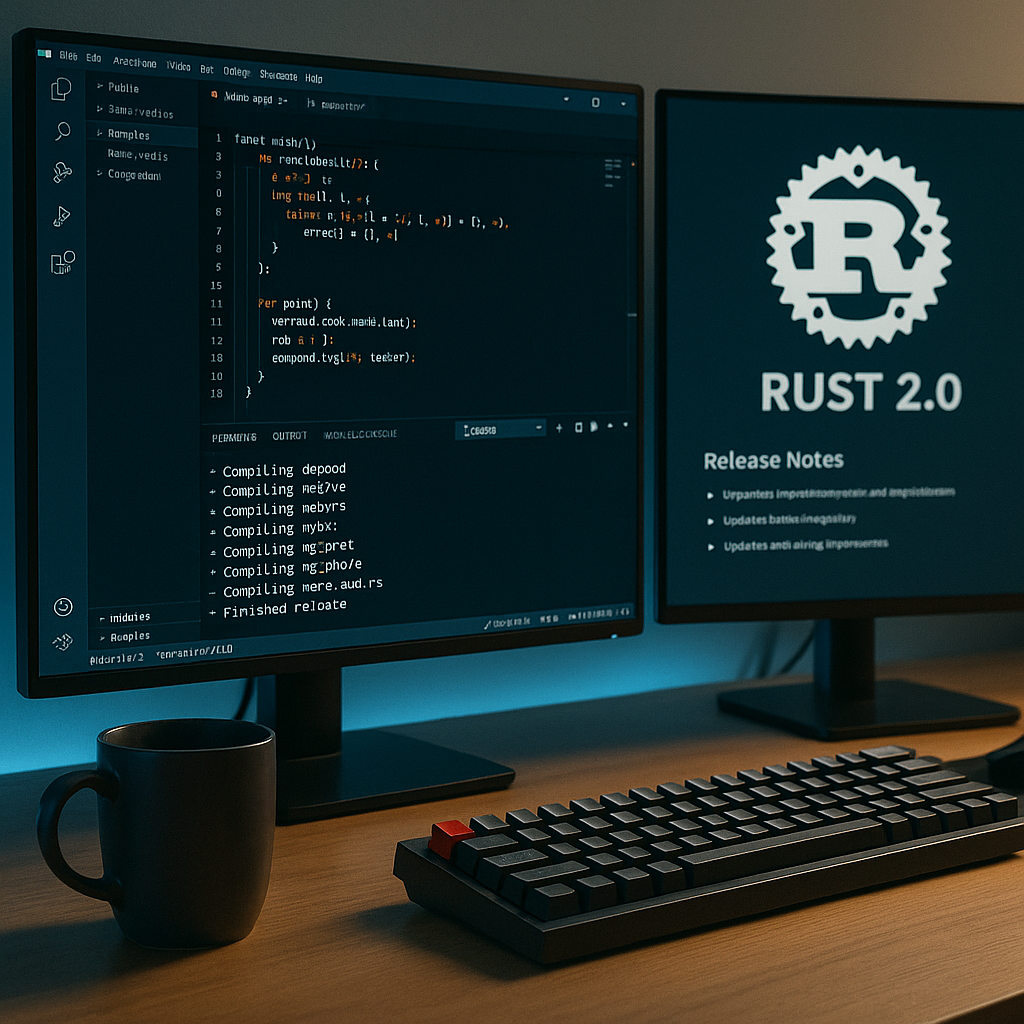July 17, 2025, San Francisco The Rust Foundation has officially released Rust 2.0, a landmark upgrade to the beloved systems programming language known for safety, speed and concurrency. The update introduces a simplified ownership model, modern async syntax and substantial compiler optimizations that reduce build times across major projects.
Rust 2.0 is fully backward compatible with most stable 1.x code and is now the default version for new installations via rustup.
What’s New in Rust 2.0
- Ownership 2.0: More intuitive lifetime inference and non-lexical borrowing by default
- Async/await: Simplified syntax, native support for
for awaitloops andasync traitimplementations - Compiler speed: 35 percent faster compilation on average across real-world projects
- Crate ecosystem: Cargo 2 with automatic feature resolution and faster dependency caching
- Linting: New Clippy ruleset optimized for Rust 2.x style guidelines
The update was developed over two years with contributions from Mozilla alumni, community maintainers and major adopters like AWS, Microsoft and Cloudflare.
Developer Reception
Early adopters and open-source maintainers have praised the release. The Servo web engine team reported a 42 percent reduction in build times using Rust 2.0. Developers at Dropbox and Tauri also noted improved integration with async runtimes like Tokio and async-std.
“Rust 2.0 gives us better productivity without sacrificing safety,” said Alice Nguyen, Rust team lead at Cloudflare. “The lifetime updates in particular make a big difference for large codebases.”
Migration Tools and Support
The Rust Foundation has released a RustFix 2 tool to automatically upgrade 1.x code to comply with new idioms. A compatibility mode is available for legacy crates, and a migration guide is live on the official Rust docs portal.
The upgrade path is opt-in, with 1.77 LTS receiving support until 2027.
Looking Ahead
Future 2.x versions will focus on portable SIMD, WebAssembly performance and embedded device support. The Rust governance team has also proposed a new RFC for ergonomic error handling and native macro debugging tools in Cargo.
Conclusion
Rust 2.0 marks a major evolution of the language, blending ergonomic improvements with performance gains that benefit both beginners and expert developers. As Rust adoption continues to expand into operating systems, game engines and AI frameworks, this release is expected to accelerate its role as a modern systems programming standard.
Sources: Rust Foundation Blog, Rust 2.0 Docs, Rust GitHub




